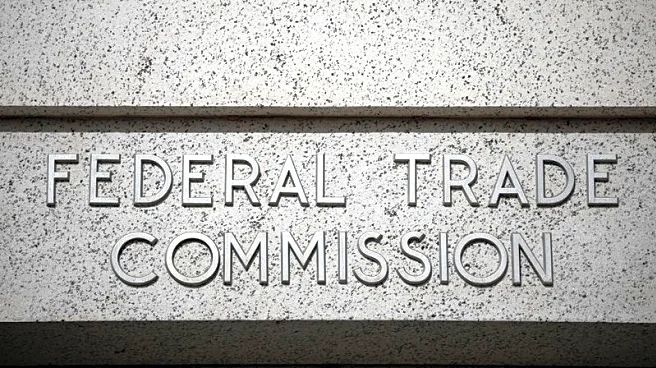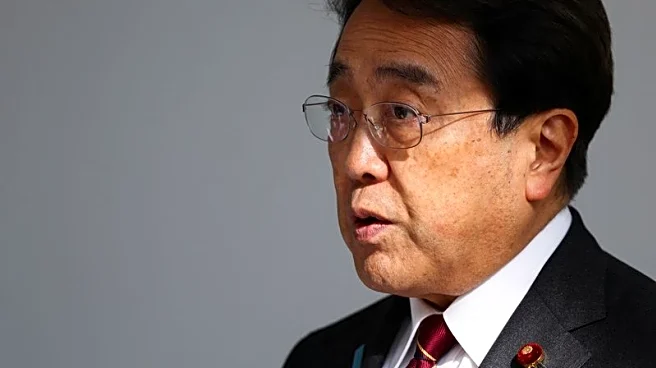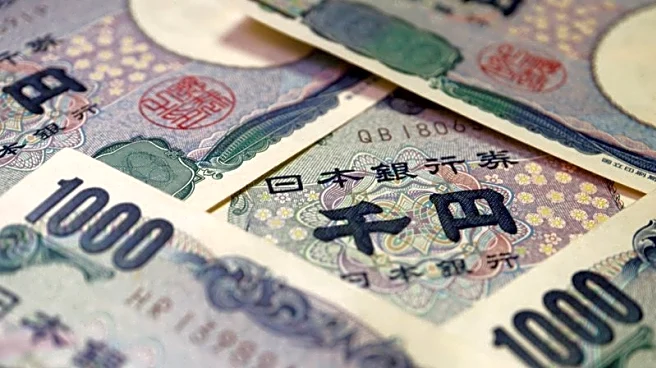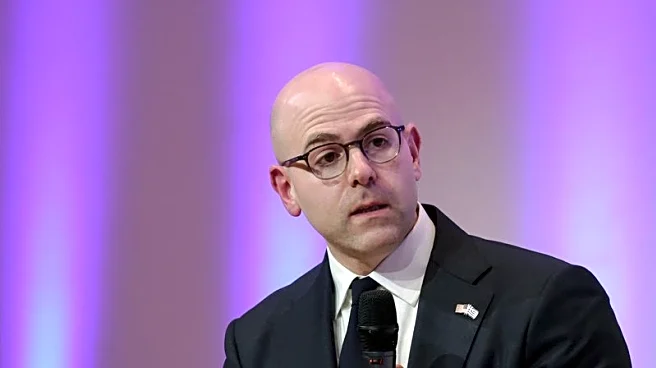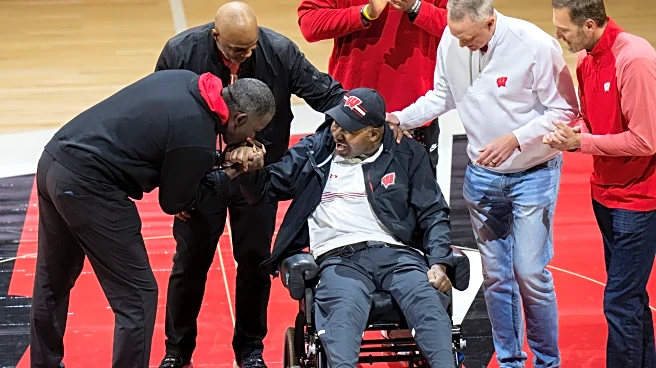What's Happening?
Aziz Ansari returns to the big screen with 'Good Fortune,' a comedy that cleverly navigates modern life's challenges. The film features Keanu Reeves as Gabriel, a well-meaning but inept angel, who intervenes
in the life of Arj, a struggling gig worker played by Ansari. Arj, living in his car and using task-finding apps to make ends meet, becomes an assistant to Jeff, a wealthy venture capitalist portrayed by Seth Rogen. The film, co-written by Ansari and Alan Yang, uses humor to explore themes of poverty and societal struggles, while also delivering a heartwarming narrative. Keke Palmer plays a supporting role as Arj's co-worker, adding depth to the film's exploration of labor issues.
Why It's Important?
The film 'Good Fortune' is significant as it addresses the realities of late-stage capitalism and the gig economy, highlighting the struggles faced by many in today's society. By using comedy, the film provides a relatable and engaging way to discuss serious topics such as poverty and economic inequality. The collaboration between Ansari, Reeves, and Rogen brings together diverse talents, offering audiences a fresh perspective on societal issues. The film's exploration of these themes through humor may resonate with viewers, encouraging reflection on personal and societal values.
What's Next?
As 'Good Fortune' opens in theaters, it may spark discussions on the gig economy and the challenges faced by workers in precarious employment situations. The film's release could lead to increased interest in similar narratives that address economic and social issues through entertainment. Additionally, the success of the film may influence future projects by Ansari and Yang, potentially leading to more collaborations that blend humor with social commentary.
Beyond the Headlines
The film's portrayal of economic struggles through comedy highlights the ethical and cultural dimensions of poverty. By presenting these issues in a humorous context, 'Good Fortune' challenges viewers to consider the complexities of economic inequality and the societal structures that perpetuate it. The film's narrative may contribute to broader conversations about the role of entertainment in addressing social issues and the potential for comedy to serve as a tool for social change.


